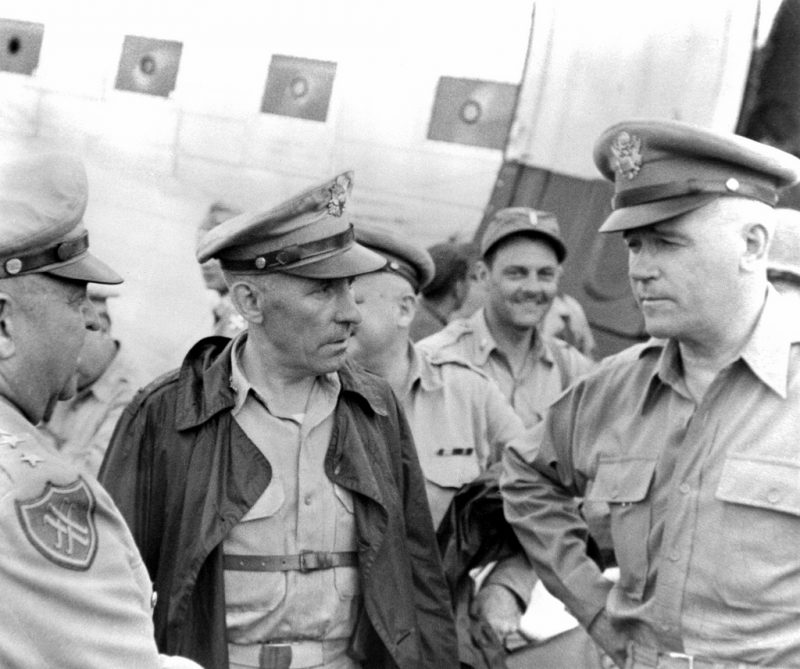On the December 23, 1950, a military jeep with two occupants was traveling on a dirt road just outside Seoul, Korea. A convoy of trucks was moving in the opposite direction. One driver in the convoy, driving a three quarter ton weapons transporter, grew impatient and pulled out to try to overtake the truck in front of him. In doing so, he collided head-on with the jeep.
One of the jeep’s occupants was flung through the windshield and hit the road hard. This unfortunate man, who found himself in the wrong place at the wrong time, happened to be one of the United States’ most respected generals: General Walton H. Walker, a close friend of the legendary General Patton.
Strangely enough, just as Patton had died in an accident involving his staff car almost exactly five years prior to this incident, so too did Walker die in a staff car accident. He was killed instantly when his jeep hit the weapons transporter.
Eerily enough, Walker’s last words, according to the jeep driver, were, “I wonder how George [Patton] would have done it?” There was, however, a lot more to Walker’s life and military career than the uncanny parallels of his demise to Patton’s.
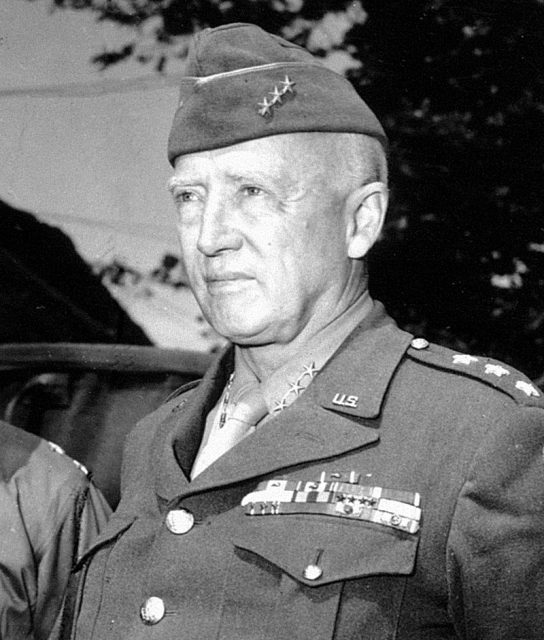
General Walton Walker, who was known as “Johnny Walker” to his friends, was a man who was short in stature, standing only five foot five, but in terms of his deeds and reputation he was a giant.
https://youtu.be/JJu3DZmp8ZY
His military career spanned thirty-eight years and he served in WWI, WWII and the Korean War. He earned decorations for valor in action in all three of those conflicts, and it was due to his command and decisions that the Eighth Army was saved from annihilation in Korea.
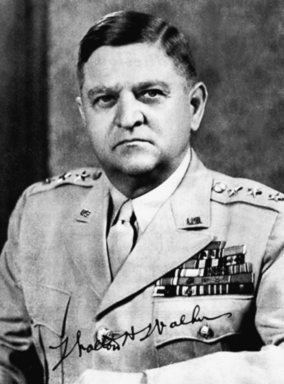
Walker knew that he wanted to be a military officer from a very early age. A tenacious go-getter throughout his life, he was born and raised in Texas, and both of his grandfathers had served as Confederate officers during the Civil War. After entering the United States Military Academy at West Point in 1907, he received his first commission – as a second lieutenant for an infantry unit – in June 1912, at the age of twenty-two.
He deployed to France in April 1918 as Company Commander of the 13th Machine Gun Division, 5th Machine Gun Battalion, 5th Army Division. During his time on the front lines of WWI, he was awarded two Silver Stars for gallantry.
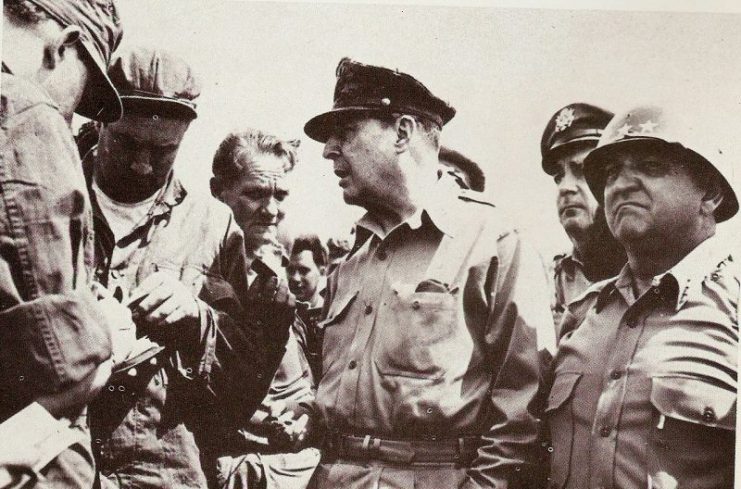
He next saw action in the Second World War. Initially serving as commanding officer of the 36th Infantry Regiment, he was promoted to the rank of major general in 1942, serving as one of General Patton’s subordinate commanders and commanding the 3rd Armored Division.
Always one to lead from the front, he led XX Armored Corps, part of Patton’s Third Army, into battle at Normandy in July 1944, an action for which he was awarded another Silver Star. His XX Corps pushed into France at relentless speed and with furious determination, and on August 23 Walker was awarded the Distinguished Service Cross for outstanding heroism in action. It was during WWII that he developed a close friendship with General Patton.
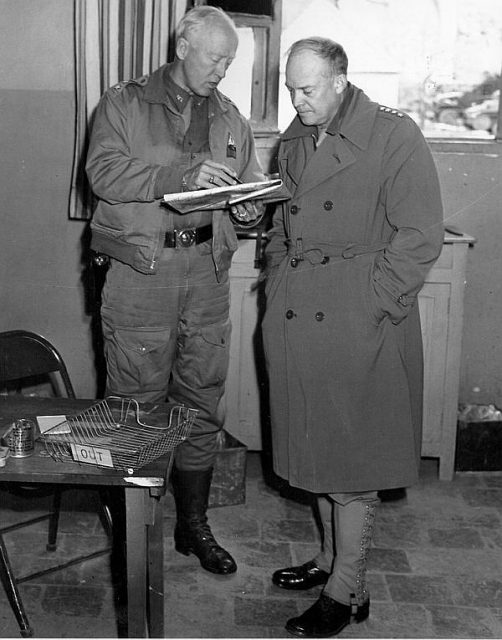
The final war in which Walker served as a commander was the Korean War, and it was due to his sterling leadership and strategic decisions in this conflict that much of South Korea was saved. His command and key decisions – countermanding the orders of General MacArthur, who outranked him – ended up saving most of America’s Eighth Army, most of which could well have been annihilated if Walker had not defied the orders of his superior officer.
It was a difficult decision – perhaps the most difficult of his military career – to have had to make during a war that had been difficult from the very outset.
From the time the US and the United Nations entered the conflict after 750,000 troops from North Korea invaded South Korea in June 1950, Walker had been handed an extraordinarily difficult task. He was ordered by President Truman to assist the South Koreans in pushing the northern invaders, who were backed by the Soviet Union, back across the 38th Parallel, the line that divided North Korea from South Korea.
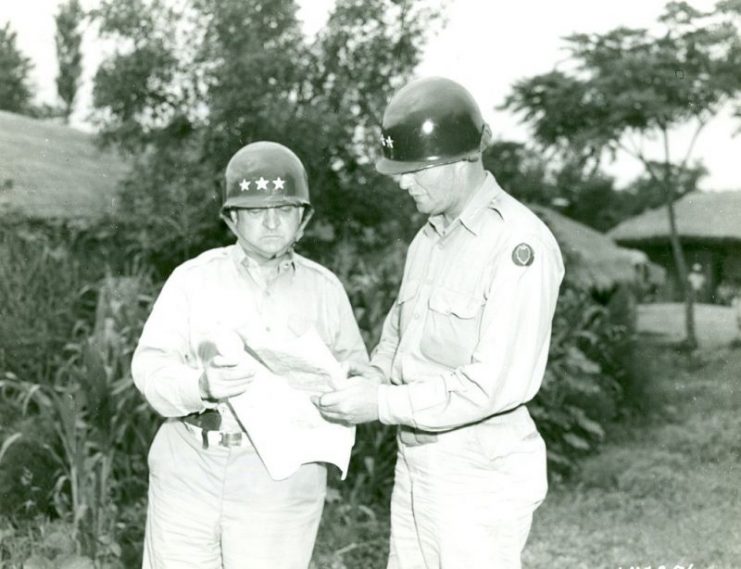
Walker soon realized that the task he had been assigned was nigh on impossible to achieve with only four divisions of troops whose weaponry and training were minimal. The numerically superior and better-armed North Koreans had little trouble in pushing the South Koreans and their United Nations allies back.
Truman and General MacArthur insisted that the American line was not to give an inch, which made a strategic retreat – the best option for the safety of the troops – impossible.
Walker did his best to both obey his superiors’ orders and save the lives of his men. Thankfully, his cryptographers cracked the North Korean military codes, so he was able to learn of the North’s planned maneuvers and assaults before they were launched and thus prepare countermeasures well ahead of time.
He was finally able to conduct a solid defensive line, and with his newfound knowledge of enemy plans and planned movements, he was able to use artillery and air strikes to great effect.
Now the South had the advantage, and Walker began counterattacking, successfully destroying a great number of North Korean tanks which had been supplied by the Soviet Union, and beating the ground forces back across the 38th Parallel.
Walker was again awarded a Distinguished Service Cross for his valor in command from July to September 1950. In tandem with MacArthur’s amphibious landings at Inchon, Walker’s forces advanced northward, pushing the North Koreans back. Seoul was retaken, the North’s line was broken through, and Walker’s Eighth Army managed to cross the 38th Parallel and occupy North Korea. It seemed that the war was won.
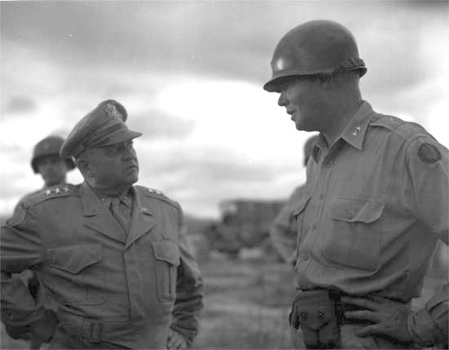
It turned out, however, that it was not over by any means. General MacArthur’s intelligence had assured him that the Chinese would not intervene in the situation, but as things turned out, this was not to be the case.
Beginning in late November of 1950, Chinese troops crossed the border and began a series of raids and night attacks against American positions. This attack quickly exploded in scale, with three Chinese armies, comprising hundreds of thousands of troops, pushing the Americans back to a position near Pyongyang, the North Korean capital.
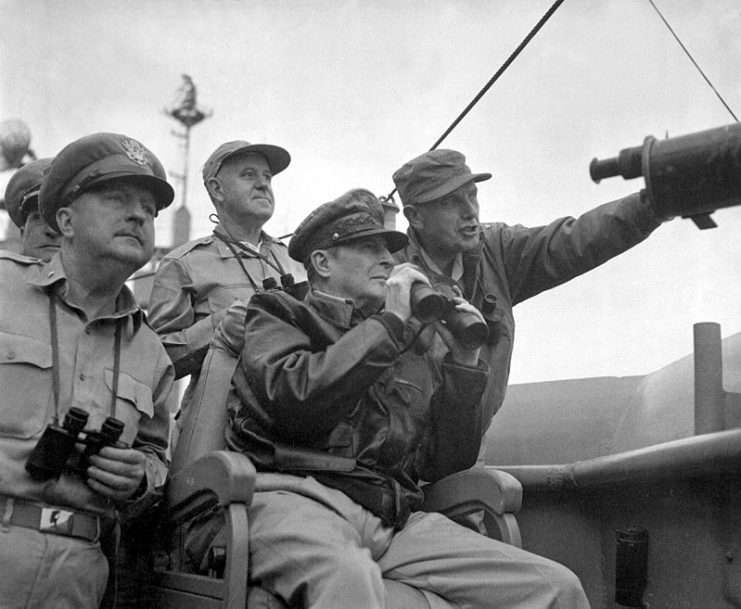
It was at this point that Walker had to make one of the most important decisions of his military career. General MacArthur still believed that a victory in the North was possible, and ordered Walker to go on the offensive.
Walker knew from front line intelligence, though, that more and more Chinese troops were swarming into the country. If he obeyed MacArthur’s orders, it was likely that his entire Eighth Army would be annihilated. When three Chinese armies launched an offensive against the Eighth Army on November 25, General Walker ordered a retreat.
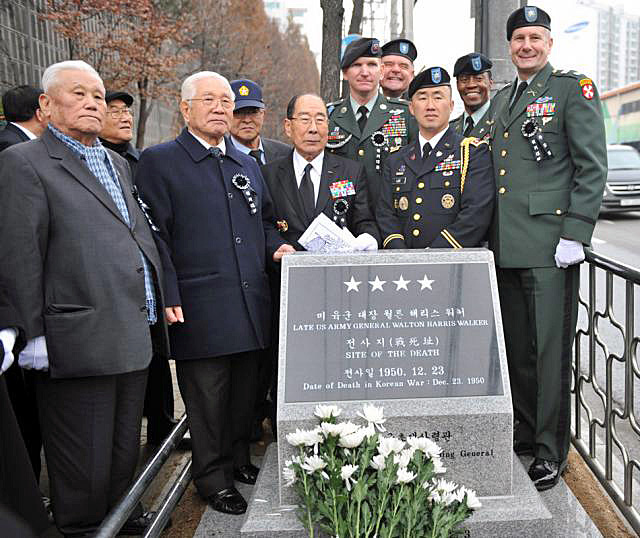
It was this retreat that saved the Eighth Army from complete destruction at the hands of the vastly numerically superior Chinese. As it turned out, though, Walker would not be around to command the Eighth Army much longer.
Read another story from us: Greatest Generals of WWII – Truscott
Less than a month after this strategic retreat he was killed in a car crash – just as his good friend General Patton had been in 1945. Posthumously promoted to the rank of full general in January 1951, General Walton H. Walker will always be remembered as a fine commander and a true soldier through and through – one who always put his men first.
